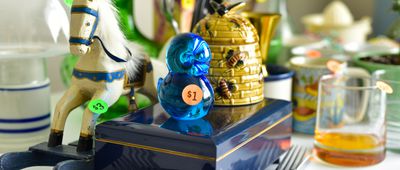Dishwasher No Nos
While dishwashers offer a convenient way to clean up after meals (raise your hand if doing the dishes is your least favorite chore), they're not a one-size-fits-all solution for every kitchen item. The combination of intense heat, powerful water jets, and abrasive detergents can damage or degrade certain materials and finishes.
Knowing which items to keep out of the dishwasher not only helps them remain functional and looking their best, but also prolongs their lifespan — saving you time and money in the long run. (And don't forget to periodically clean your dishwasher.)
Here are 15 items you should never place in the dishwasher.
























